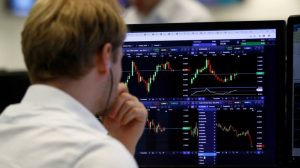Poland backs French bid to kill Mercosur trade deal

Unlock the Editor’s Digest for free
Roula Khalaf, Editor of the FT, selects her favourite stories in this weekly newsletter.
Poland has joined a French-led attempt to block an EU free trade deal with Latin American countries that Brussels casts as essential to boosting economic ties at a time of rising global trade tensions.
Polish Prime Minister Donald Tusk said he wanted to send a “political message” that Warsaw could not accept the current terms of a trade deal that would hurt its agricultural sector. Poland is the EU’s biggest poultry producer.
“We will not accept the agreement with South American countries in this [current] form,” Tusk said on Tuesday, adding that “many member states share this opinion”.
The fate of the Mercosur trade agreement, which has been two decades in the making, hangs in the balance ahead of a meeting of the bloc’s five members — Brazil, Argentina, Uruguay, Paraguay and Bolivia — next week.
Last January French President Emmanuel Macron stepped up his opposition to the deal, saying it would cause environmental damage and subject farmers to unfair competition.

The dispute is spilling out into the corporate arena. French retailer Carrefour on Tuesday attempted to calm a backlash in Brazil caused by its decision to no longer source meat from Mercosur for its supermarkets in France.
Carrefour’s boycott, which was announced last week in solidarity with protesting farmers, has led major Brazilian meatpackers to stop selling to its more than 1,000 shops in Latin America’s largest economy, a move that was publicly backed by Brazil’s agriculture minister.
In announcing the move, its chief executive had suggested Mercosur meat did not respect French standards. The company has expressed “regret” that its stance had been “perceived as a questioning of our partnership with Brazilian agriculture or as criticism of it”, but did not apologise or retract the measure.
Austria is also opposed to the pact while the Netherlands is sceptical about its merits, but the alliance needs to recruit a big country state such as Italy to succeed in voting down an agreement if it is concluded. Four or more states representing at least 35 per cent of the EU’s population need to vote against in order to block the deal.
Germany, Spain and many other member states have pushed hard for the deal, sealed in principle in 2019 but stuck in limbo since. The EU has asked for additional environmental commitments while Brazil wants protection for its electric vehicle industry.
Valdis Dombrovskis, the EU’s trade commissioner, said last week that talks were continuing to iron out the final issues.
Polish farmers have intensified their lobbying against cheaper Latin American food exporters, claiming they damage competition and lower safety standards in the bloc. Last weekend some Polish farmers held a 24-hour blockade of a border crossing with Ukraine in protest against both Ukrainian exports and the planned Mercosur deal.
The European Commission and its president, Ursula von der Leyen, have been pushing for a Mercosur accord that would create a market of 780mn people and save businesses in Europe more than €4bn annually in tariffs, according to Brussels calculations. EU companies have €330bn of investments in the Mercosur quintet.
Von der Leyen and Tusk belong to the same political group in the European parliament and Tusk helped her secure another term in office this year.
While Tusk has pledged to return Poland to the heart of EU policymaking since ousting the Eurosceptic Law and Justice (PiS) party from office last December, his government has prioritised its domestic agenda.
Last weekend Tusk’s ruling party and PiS announced their candidates for next May’s presidential elections. Tusk needs a politician from his ruling coalition to win the presidency and support a reform agenda that has been vetoed by outgoing President Andrzej Duda, a PiS nominee who is completing his second and final term.
Over the past year, Tusk’s government has opposed an immigration pact and an EU nature restoration law that was also opposed by Polish farmers.
In March Warsaw also pressured Brussels into tightening restrictions on Ukrainian imports of poultry and some other foodstuffs, after Kyiv was granted preferential trade terms to help its economy stay afloat following Russia’s full-scale invasion in February 2022.
#Poland #backs #French #bid #kill #Mercosur #trade #deal





